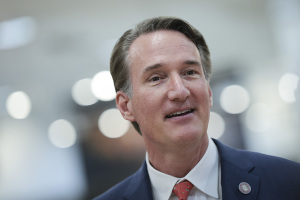Indiana passes pro-family law on same day abortion ban was approved

On the same day Indiana’s abortion ban became law, the state's governor also signed a bill to provide additional resources to help parents of young children and ease the financial burdens of pregnant women, which is often cited as a reason for terminating pregnancies.
Indiana’s Republican Gov. Eric Holcomb signed Senate Enrolled Act 2 into law Friday. The measure establishes the “Hoosier Family First Fund,” which allocates $45 million to “support the health of pregnant women, postpartum mothers, and infants,” “to support pregnancy planning, including addressing barriers to long acting reversible contraception” and “to support the needs of families with children less than four (4) years of age who are low income or lack access to resources.”
Holcomb’s approval of Senate Enrolled Act 2 came on the same day that he signed Senate Enrolled Act 1 into law, which implements a near-total ban on abortion in the state. “Today I proudly signed Senate Enrolled Act 2 to return $1 billion back to Hoosier taxpayers,” he said in a statement.
“This fulfills what I set out to accomplish when calling the General Assembly into special session in order to help Hoosiers hurting from historically high inflation. I am also especially grateful for the nearly $100 million in long overdue increased funding to support the health of our Hoosier mothers and babies. While there is still more to do, better access and awareness of all our programs will be critical to improving our infant and maternal mortality rates,” Holcomb added.
Holcomb’s approval of the bills comes six weeks after the United States Supreme Court’s decision in Dobbs v. Jackson Women’s Health Organization overturning the Roe v. Wade ruling that legalized abortion nationwide. The Dobbs ruling gives the states authority to regulate abortion.
Over the years, pro-life politicians have faced criticism for not doing enough to support women and their children after they give birth. Senate Enrolled Act 2 states that the legislation will “provide funding to providers of maternal support services and services to help pregnant women and their families bring their pregnancy to term.” It stresses that “to be eligible for funding under this subdivision, providers may not be affiliated with any abortion clinic.”
Additionally, the Indiana law will exempt diapers from the state’s gross retail tax and provide a $3,000 tax credit for adopted children that are either younger than 19 or a full-time student who is 24 years old or younger.
Unlike the near-total abortion ban signed into law the same day, Senate Bill 2 received support from the overwhelming majority of the Indiana Legislature. Ninety-three members of the state’s Republican-controlled House of Representatives voted to approve the measure while just seven voted against it. Five of the votes against the bill came from Democrats while two Republicans opposed it. In the Republican-controlled Indiana Senate, the bill passed in a 46-1 vote, with only one Senate Democrat voting against it.
Indiana is not the only state to pass a law providing some sort of financial relief or support to expectant or new mothers following the Dobbs ruling. Last week, Georgia’s Department of Revenue released guidance explaining that expectant parents can claim exemptions of $3,000 for their unborn children on their Georgia individual income taxes as long as the child has a “detectable human heartbeat.”
According to the National Council of State legislatures, 11 states currently offer paid family leave. While all of the states that have paid family leave have voted overwhelmingly Democratic in the 2020 presidential election and have generally been controlled by Democrats during that time, the idea has gained traction among Republican leaders in states where strict abortion bans have taken effect following the Dobbs decision.
South Dakota Gov. Kristi Noem, a Republican, acknowledged the concern among conservatives regarding the “financial cost” and “medical cost” of paid family leave during an appearance on CNN last month. However, Noem identified the policy as “something I have supported in the past” and concluded that “the time is right” to enact it in South Dakota. Noem’s comments on CNN came less than two weeks after the Dobbs ruling.
At the federal level, Sens. Marco Rubio, R-Fla., and Mitt Romney, R-Utah, have introduced the New Parents Act. If enacted, the measure would allow parents with a median household income of about $60,000 or less to take paid family leave by using a portion of their Social Security benefits.
Efforts to provide financial assistance to poor women experiencing an unplanned pregnancy likely stem from the frequent citation of “economic reasons” among women seeking abortions. A 2021 Minnesota Department of Health report compiling statistics about “Induced Abortions in Minnesota” from January through December 2021 listed 1,346 abortions that occurred in the state because of “economic reasons.” One of the other most common reasons for abortion in Minnesota was because the woman “does not want children at this time” (5,499).
In 3,579 cases, the women reported that they did not know why they had an abortion. By contrast, just 11 abortions in Minnesota in 2021 were committed because of a pregnancy resulting from rape while just 44 cited the conception of their unborn child through incest as the reason for terminating the pregnancy.
Ryan Foley is a reporter for The Christian Post. He can be reached at: ryan.foley@christianpost.com





























